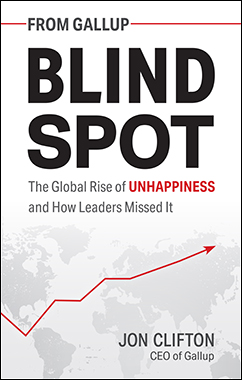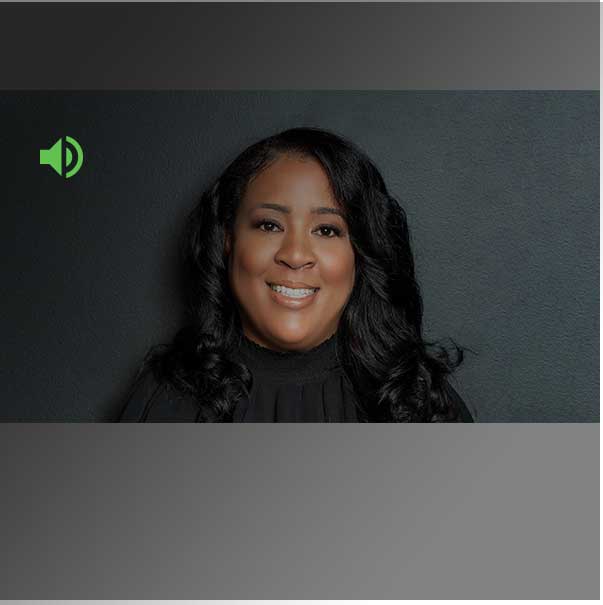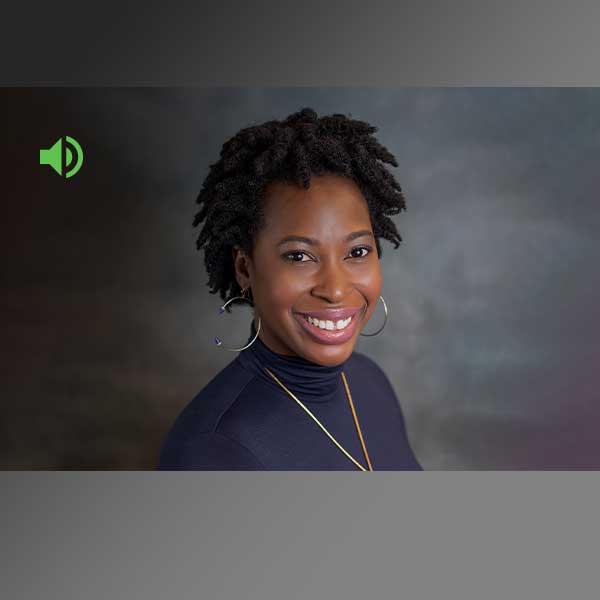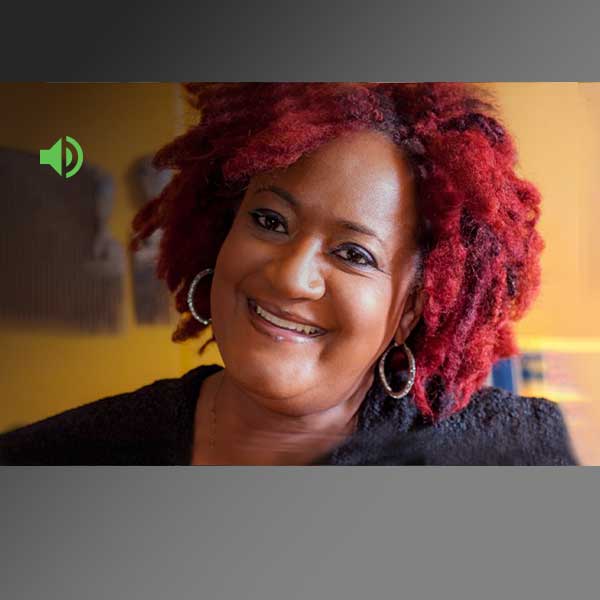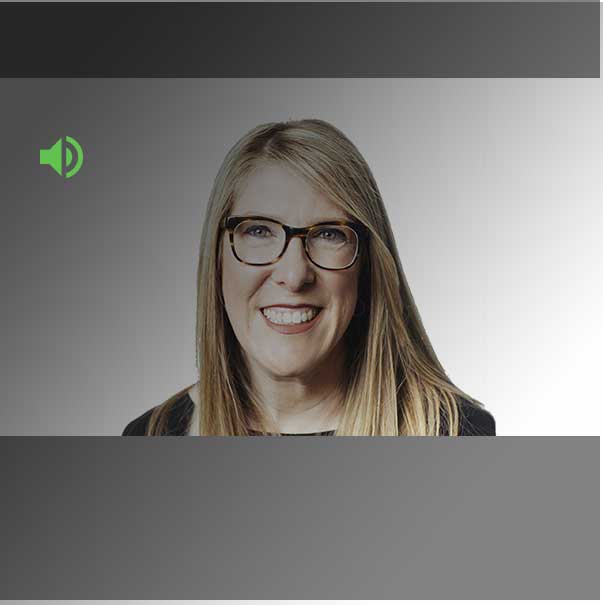A truly inclusive workplace requires invention and reinvention, mistakes and humility, adaptation to a changing world, constant self-reflection, and, sometimes, significant sacrifice. In this exclusive interview, Dr. Ella F. Washington talks about her new book, The Necessary Journey: Making Real Progress on Equity and Inclusion.
Camille Lloyd is the Director of the Gallup Center on Black Voices. Follow her at @policyresrchbuf
Dr. Ella F. Washington is the CEO of Ellavate Solutions and a Professor of Practice at Georgetown McDonough School of Business. Follow her at @EllaFWashington
Learn more about the Gallup Center on Black Voices at gallup.com.
Below is a full transcript of the conversation, including time stamps. Full audio is posted above.
Camille Lloyd 00:11
Hello everyone. Thanks for tuning in to Cultural Competence. This week, we're airing an exclusive interview with Gallup Editor in Chief Mohamed Younis is talking to our very own cohost Dr. Ella Washington about her new book, The Necessary Journey: Making Real Progress on Equity and Inclusion, which is available for preorder. Many organizations have largely missed the mark when it comes to creating environments where all employees thrive in an equal and equitable way. And that's because they treat diversity, equity and inclusion as a program that gets done rather than the necessary and difficult journey it is. A truly inclusive workplace requires invention and reinvention, mistakes and humility, adaptation to a changing world, constant self-reflection, and, sometimes, significant sacrifice. Dr. Washington writes about companies that are making the necessary journey. These include Slack, Price Waterhouse Coopers, Best Buy, Denny's and many others. I hope you enjoy this special episode.
Mohamed Younis 01:28
For Gallup, I'm Mohamed Younis. This week, we delve into the subject of diversity, equity and inclusion. Is it about making people feel better, or is there a real science behind these concepts? Dr. Ella Washington is the founder of Ellavate Solutions, a professor at Georgetown University and, most importantly, a Gallup senior scientist. Her new book, The Necessary Journey: Making Real Progress on Equity and Inclusion, and it's available for preorder today. Ella, welcome to the podcast.
Ella Washington 01:57
Hi, Mohamed. Thank you so much for having me.
Mohamed Younis 02:00
I wanted to start off by asking you, why did you want to write this book?
Ella Washington 02:05
So this book started with how I was feeling in 2020, as well as my experience as a career long DEI researcher and practitioner. So from an individual perspective, I was in D.C., I'm a Black woman. I'm seeing the racial reckoning unfold in real time. I'm having helicopters outside of my windows for days on end, as the protests were happening, and I'm like, wow this is the first time I'm living through something like this, you know, especially in our country, right? And there was fear there, there was confusion, there was anger. There was also wondering, what should I be doing? Because, you know, COVID-19 was still very much raging. And so there was this moment of like, how can I help with the movement? And I realized that my platform is in teaching and writing and speaking and being a voice of the people in that way. You know, getting into protesting, we all have a role in the movement, right? And so I thought about all those things.
Ella Washington 03:03
And then from the DEI practitioner lane, I had companies coming to me for the first time ever, in many instances. And they were, for the first time, thinking about, you know, what should we be doing about DEI? We're not doing enough; we haven't done enough. We want to make meaningful change. And instead of business as usual, I wanted to be thoughtful about how to actually help these companies. And, you know, during that summer, you know, I remember CEOs and chief human resource officers. Every single time I had a new meeting, they would pull me aside at some point in the meeting or after the meeting and say, "So really, like, where are we on the DEI journey? Like, tell me, where are we?" And then, inevitably, the very next question would be, "How do we compare to other people? What we really want to know is how are we stacking up?" Because that's how leaders think, right; we're always trying to compare and understand how we're doing in the grand scheme of things.
Ella Washington 3:54
And after I got that question, tens and twenties and thirties of times, I said, OK, there must not be this information out here, in terms of how organizations can really bring this concept of DEI -- to your point in your opening -- to tactical solutions and how do we actually make change? The idea of a journey is something that people have always said around DEI: It's a journey. It's a journey. But what does that really mean? And I found that there were so many questions around that, it led me to want to spend the next two years researching and creating what is now the book, The Necessary Journey.
Mohamed Younis 04:28
I love how you took a situation where a lot of us were, like, what the hell do I do? and really turned it into a book. That's amazing! So many people in our space have that thought and those feelings, but they never get to this spot. So I'm just so happy for you. I read the book. I can't express how important it is to really consume this information and educate ourselves, no matter who you are. I think one of the things for me after the George Floyd murder was -- and I know, Ella, we talked about this a lot at the time -- how none of this was new. But it was kind of new for corporate America and leaders across industries, in the sense that it felt like they were taking the issue of inequality way more seriously than before.
Mohamed Younis 05:25
I can only imagine what your life was like those days. I remember the first few weeks of getting an email from every corporation I've ever bought something from, saying basically, Black lives matter; Black people are human beings, you know, a lot of things that are like, wow, you needed a newsletter to let me know that? And you're one of the people that was really continues, and, and really started helping organizations do something beyond a statement. Let me ask you that question: What, how did you handle that?
Ella Washington 05:58
You know, it was truly shocking in a way, because I have spent my entire career in this space, and, you know, for many years, it felt like DEI was on the outskirts and on the fringe of things. And it was, to me it was shocking, fascinating, exciting, all at the same time, to see companies making these huge statements, you know, very publicly calling out things like White supremacy and racial inequity and saying, we stand for social justice. That was great. But at the same time it also was a little bit scary because I'm like, you know, this work is not new, and so what's so different now? And it made me wonder if anything would really change beyond the moment. And that's where you start to hear a lot of those "moment or movement" type of sayings that were going around. And still people are like, OK, the moment has passed. You know, what happened to the movement?
Ella Washington 06:48
And, you know, I think it's really important. And one thing I talk about, I lay out in the first chapter of my book is for people to understand, to your point, DEI is not new. The history of diversity management, as it was first called in the late '80s and early '90s, you know, from an academic and corporate perspective, is not something that just happened in 2020. And then if you think about the study of social movements in general, such as the civil rights movement, the women's movement, the LGBTQ movement, all of those movements have also had an impact on DEI, but even from a corporate perspective, DEI is not new. And so it's one thing I really want people to understand, because if we don't understand that this wasn't a new thing, then we forget that we've been here before, and we could be here again if we don't do something really different as we move forward. And so that's why it's really important, I think, you know, to know your history and you know, the history of DEI in this country and more broadly. Because if not, you know, in five or 10 years, we'll be right back here where we were, you know, in 2020.
Mohamed Younis 07:51
In the book, you tackle this term, which I love, called "workplace utopia." What is it? And why is it important to understand that concept?
Ella Washington 08:01
Yeah. You know, I always start with, we're not talking about butterflies and unicorns, and that's what comes to mind when we think about workplace utopia, but we're really talking about, how can we make work environments where everyone can thrive? Everyone can bring their whole selves, and they are able to have bits and pieces of their workday and work experience that they feel like they really belong, right? No workplace is perfect, first of all, but we can have workplaces that people feel welcomed and they can, they can be their whole selves.
Ella Washington 08:31
And so workplace utopia, for me, is putting that idea out there, like what is an ideal work environment for me? Because it looks different for every person, right? And so the more that we get people to talk about, you know, what it would feel like or look like for them to belong and feel included and feel like they had equal opportunities for success, the more we can start to tactically move towards those things. I think for a long time, people don't think about workplace utopia because especially, you know, Black people, other people of color, women, we feel like we're in these workplaces, and we just have to take whatever is given to us. Like, you know, they say they want us to be included, but they don't really mean that; I just need to assimilate, or I just need to, you know, get through the day. And so workplace utopia is kind of dismantling that idea that we have to be an other self at work, or dismantling the idea that workplace, you know, inclusion is only for certain people. It's really for everyone. How do we get to a place of utopia that everyone can see themselves in?
Mohamed Younis 09:28
If I'm, I'm going to ask you, like, a really hard-core question: If I lead a company, why should I care about diversity, equity and inclusion? And why should I care about people bringing their whole self to work?
Ella Washington 09:41
Well, if you're leading a company, what's probably top of mind for you is your bottom line and the success of your company. And again, there have been decades of research that talk about the business impact of diversity and inclusion, specifically, from, you know, how much our teams produce, because we get more from ourselves when we can be our best selves. We get more creative ideas. We're able to better, you know, come up with decisions as a group when we communicate and we feel included. From that level to, you know, how we're reaching our customers. If we don't understand our consumer base, how can we, you know, really market and meet diverse market needs, right? And so there's so, there's a plethora of information on the business case around having more diverse teams, diverse companies, and having people feel included, because you can't have one without the other if you really want to see an impact.
Ella Washington 10:34
But further, you know, as a CEO, I would I would ask you, what is the mission and purpose of your organization? So it's, you know, there's this moral case versus the business case argument; to me, it's both, right? And so we can clearly lay out the business case for you. If you give me your organizational data and some time with your HR teams, I can lay out the business impact of having diverse, equitable and inclusive teams. But then when you think about who you want your organization to be, it's one thing that I work with a lot of leaders on is, what's the purpose of your organization, and how does DEI fit and align with that purpose and mission? A lot of organizations, you know, just jump to doing DEI work, and in the book, how I lay out, you know, they're at the tactical stage. They're doing things, and they can be great things, you know, in different pockets, but it's not integrated into the business strategy; it's not integrated into the core cultural fabric of the organization. So as a CEO, as a leader, those are the things I would tell you that you should consider if you really want to have an impact, both from a business perspective, but also for an organizational identity.
Mohamed Younis 11:39
In the book, you talk about a necessary journey that organizations need to take or leaders need to take. What is that journey, and is it the same for everyone?
Ella Washington 11:48
The journey is not a one-size-fits-all, which is probably the most frustrating things for leaders who are used to having a playbook.
Mohamed Younis 11:55
Tell me what to do.
Ella Washington 11:56
Yeah, tell me, tell me how to get an "A" on the test, right? Which is why they say things like, "What are the low-hanging fruit," you know, "What are the things that we can kind of check the box?" Even though they really do, I think, for the most part, want to make progress, their mindset is that, how do we do the thing, get the results and move on to the next thing? And the hard and frustrating part about that is, is DEI, there is no end. And so, while I provide a framework for people to understand kind of where they are on the journey and the things that they should be doing to progress and mature in that journey, the hard part is that even companies at the final stage of being sustainable, they still have to continue to evolve, because DEI is about elevating humanity in the workplace.
Ella Washington
And so as long as there are people working in some facet of your organizations, people will change and grow and more. And my idea is that, you know, hopefully we are shifting what we're focusing on in the next five and 10 years in the DEI conversation, but it will not evolve. You know, it will really just continue to grow and change as our society grows and, grows and changes. And, you know, if, if we think about an endpoint for DEI, then we get lost in that, and we get frustrated. And that's where people, you know, quit and they say, OK, we've been doing this thing, we put all these resources, you know, we checked all the boxes, we wrote all the transparency reports, and we're still not seeing change. It's because you're not seeing it as a human artifact of the organization. You're seeing it as just, just another strategy. So there should be a strategy, but it has to have a human element in it.
Mohamed Younis 13:29
Is it fair to say that this is really more of a practice than it is a one-time decision on the part of organizations to really keep DEI first and foremost on the minds of their leaders?
Ella Washington 13:43
I would go even further -- I think it's a mindset. I think if our mindset is that we want this organization to be an inclusive place where there are diverse perspectives and where we have set the organization up so everyone has an opportunity to thrive, acknowledging that there are societal limitations and historical factors that do come into play. Because we wish we could keep all that outside of our organization, but it shows that within our organization. But within the span of control of our sphere of influence in this organization, we are truly committed to, you know, diversity, equity, inclusion, that's a mindset. That's not just a program; that's not a Black history month speech; that's not a Pride month rainbow. That is a mindset.
Ella Washington 14:27
And when you have that mindset, and you make that a core tenet of your organization, your expectations change. Your expectations for what success looks like changes. Your expectations for what managers should be doing on a daily basis changes. It goes from DEI up in this corner with HR, and that's just the chief diversity officer's responsibility to, no, this is part of everyone's responsibility. And if one person drops the ball, we're all dropping the ball.
Mohamed Younis 14:56
Maybe that's a great segue or you answered my question before I ask it. My final question really is, if there's one thing you want people to take away from this book, what would it be?
Ella Washington 15:07
I would say that, you know, the journey is never ending. And though that can be scary, I think we can shift our mindset and think about it as something beautiful. If we are elevating humanity in the workplace by being thoughtful and intentional around DEI, it should be a beautiful thing to welcome people; it should be a beautiful thing for people to finally feel heard and seen and valued. And by the way, it makes our organizations better. It makes us have better business. It makes us have better outcomes. And so the one thing I would say to take away: you know, it is a journey, but you can do it. You know, you can take the first step; you can continue on the journey; and you can see progress.
Mohamed Younis 15:46
On that note, Dr. Ella Washington. Her new book is called The Necessary Journey: Making Real Progress on Equity and Inclusion. It is available for preorder today. Ella, it's so great to have you with us.
Ella Washington 15:59
Thanks for having me.
Camille Lloyd 16:02
That's our podcast. To subscribe to Cultural Competence from any podcast app, just search "Cultural Competence." You can learn more about the Gallup Center on Black Voices by visiting gallup.com. Cultural Competence is directed by Curtis Grubb and produced by Justin McCarthy. I'm Camille Lloyd.
Ella Washington 16:19
And I'm Dr. Ella Washington.
Camille Lloyd 16:21
Thanks for tuning in to Cultural Competence. A diversity and inclusion podcast.
